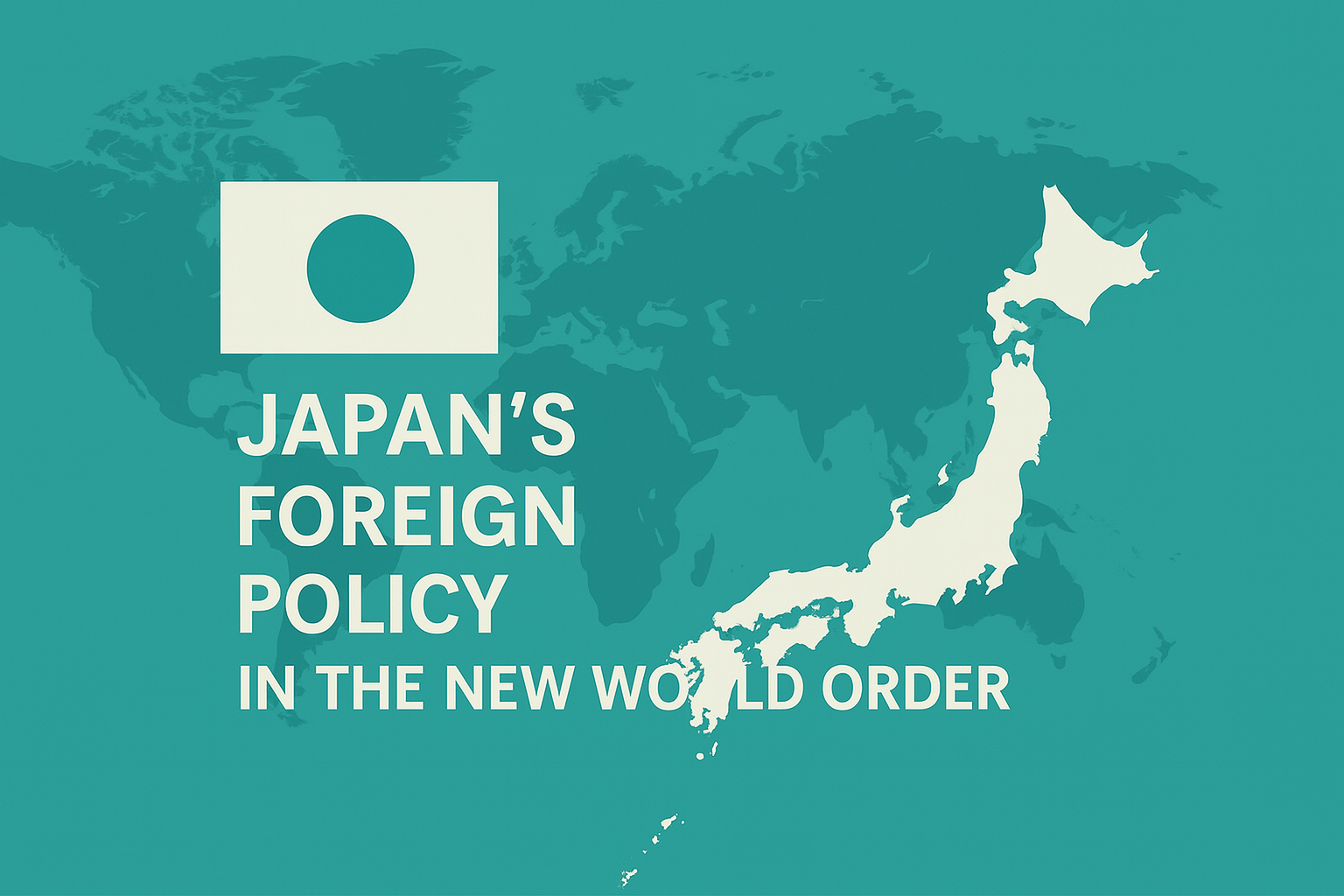A Three-Pillar Strategy of Geopolitics, Economics, and Security in a Fragmented World
Author: Ph.D. in International Relations
- 【Introduction】— Japan at a Crossroads in the New Global Order
- 【I】Geopolitical Strategy: Establishing Japan as a “Bridge State”
- 【II】Economic Strategy: Anchoring on Currency, Technology, and Rule-Making
- 【III】Security Strategy: Multilateral Coordination with Controlled Autonomy
- 【IV】Strategic Positioning: Not to Pursue Hegemony, But to Shape Order
- 【Conclusion】— Japan as the “Quiet Center of Gravity” in a Divided World
【Introduction】— Japan at a Crossroads in the New Global Order
The mid-21st century marks the end of the unipolar moment. As the United States faces relative decline, China rises assertively, and regional powers such as Russia, India, and the European Union increase their influence, the global order is shifting toward a fragmented and multipolar structure.
In this context, Japan occupies a unique position as a mid-sized economic powerhouse, a maritime nation, and a leading technological society. This report analyzes how Japan can strategically navigate and contribute to the emerging global system, through a tripartite framework: geopolitics, economics, and security.
【I】Geopolitical Strategy: Establishing Japan as a “Bridge State”
1.1 Geostrategic Importance of Japan
- Japan is located at the eastern edge of the Eurasian continent, serving as a key actor in the Indo-Pacific and at the front line of U.S.–China rivalry.
- Its proximity to flashpoints such as Taiwan, the Korean Peninsula, and the East China Sea underscores its significance as a frontline state for the Western alliance.
1.2 Multi-Layered Diplomacy
- Japan should maintain its security alliance with the United States while pursuing pragmatic engagement with China and regional neighbors.
- Through strategic cooperation with QUAD, ASEAN, the UK, and Australia, Japan can reinforce its role as a diplomatic hub in a multilayered security network.
【II】Economic Strategy: Anchoring on Currency, Technology, and Rule-Making
2.1 Trusted Financial Center and Currency Stabilizer
- The Japanese yen remains a globally trusted currency. Amid dollar volatility and RMB distrust, Japan can emerge as a financial safe haven in Asia.
- By promoting transparent legal and corporate governance systems, Japan can become a regional asset management platform, akin to Singapore.
2.2 Technological Rule-Shaping Power
- Japan’s strength in materials, precision manufacturing, and advanced technologies places it at the center of global supply chains.
- In fields such as AI ethics, data governance, and decarbonization, Japan can propose a third path—distinct from both the U.S. and Chinese models—thus leading global rule-making initiatives.
2.3 Economic Security Leadership
- Japan must strengthen its autonomy in strategic sectors: semiconductors, energy, food security.
- By exporting infrastructure, legal standards, and sustainability models to Southeast and South Asia, Japan can expand its economic sphere of influence.
【III】Security Strategy: Multilateral Coordination with Controlled Autonomy
3.1 From Dependency to Multi-Vector Security Ties
- While preserving the U.S. alliance, Japan should deepen security ties with NATO, AUKUS, and regional powers such as India and the UK.
- Japan can play a key role in maritime domain awareness and naval coordination to ensure a free and open Indo-Pacific.
3.2 Building Autonomous Defensive Capabilities
- Developing counterstrike capabilities, cyber defense, and space-based systems is essential for strategic self-reliance.
- Cultivating a robust defense industry and securing critical digital infrastructure will enhance non-military deterrence.
3.3 Leadership in Non-Traditional Security
- Japan can lead global rule-making in areas such as climate security, biosecurity, AI weapon regulation, and critical infrastructure protection.
【IV】Strategic Positioning: Not to Pursue Hegemony, But to Shape Order
4.1 Japan’s Strategic Framework
| Dimension | Strategic Direction |
|---|---|
| Geopolitics | U.S. coordination + Asian engagement |
| Economy | Currency + Technology + Regulatory Export |
| Security | Multilateral cooperation + Autonomous defense |
| Soft Power | Ethical leadership + Cultural diplomacy |
4.2 Strategic Objective:
Japan should not aim to become a hegemon. Rather, it should become a “neutral hegemonic facilitator”, offering gravitational stability in an increasingly unstable world.
【Conclusion】— Japan as the “Quiet Center of Gravity” in a Divided World
In its modern history, Japan has evolved from a rising power to a defeated nation, and then to an economic giant. Today, it must pursue a new form of leadership—one grounded in wisdom, restraint, and global responsibility.
Japan’s mission in the 21st century is to bridge ideological divides, moderate geopolitical tensions, and provide a stabilizing core in a fragmented world order. In doing so, it can redefine its role—not as a dominator, but as a designer of peace, trust, and order.


